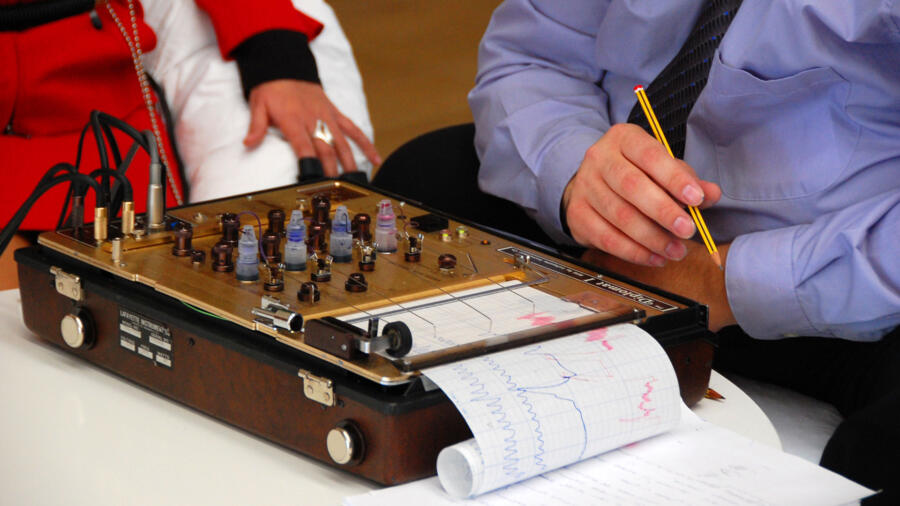On Christmas Eve 2002, 27-year-old Laci Peterson went missing. Police soon began to view her husband, Scott Peterson, as a suspect—in part because he refused to take a polygraph test the night she disappeared (or at any subsequent point). After Laci’s body was discovered near the location of Scott’s alibi, he was arrested, charged and convicted for her murder.
But how sound was the reasoning that a refusal to take a polygraph is a sign of guilt?
The legal community is deeply divided on the validity of the test. Although the polygraph has a better “hit rate” for picking out lies than interrogators working without lie-detection technology, a handful of state courts have completely banned the use of polygraph evidence. Most require agreement from both prosecution and defense before it can be admitted, with the only exception being New Mexico. That’s because the polygraph—as currently applied by American law enforcement—has a “lie bias,” meaning it’s far more likely to misclassify innocent people as guilty rather than vice versa, says Maria Hartwig, a professor at the John Jay College of Criminal Justice and an expert in deception detection. “That’s not the kind of error I would like a test to have,” Hartwig says. “If I were innocent, I would not take a polygraph.”
Douglas Williams, a former polygrapher for the Oklahoma City Police Department, has since become a prominent anti-polygraph activist and was even briefly jailed for teaching people how to beat the test. We spoke with him about what he sees as the test’s fundamental problems.
What were your experiences with the polygraph, before you decided to advocate against its use?
I was on the police force in Oklahoma City from 1969… but in 1972 I noticed a notice on the bulletin board for a job opening… It was a quick way to make sergeant.
I ran seven or eight tests a day. Sometimes 10, sometimes 12. [About 6,000 in total over seven years.] I got them in there, got a confession and then sent them off to somebody else. It was like a slaughterhouse.
Can you explain how it’s administered?
It’s got a cardio cup similar to that used by the doctor to go around your left arm… then it’s got what’s called pneumo tubes—rubber tubes placed around your chest and stomach… then you have what’s called Galvanic skin-response electrodes, placed on the first and third fingers of your right hand… Then we just sit there and try to convince you that we can determine whether or not you are telling the truth by how you’ve breathed, your right hand’s sweat and your heartbeat. Which is, of course, ludicrous.
Why is it ludicrous?
What they’re measuring is what’s known as the “fight-or-flight” response. Polygraph operators claim that the polygraph is 95 to 100 percent accurate as a lie detector. In order for that to be true, every single time your heart starts to beat fast, your breathing becomes erratic, your blood pressure increases and the sweat activity on your hand increases… you have lied. The problem with that is that it’s simply not true.
There are many, many innocent stimuli that can cause the exact same reaction… Nervousness. Fear. Embarrassment. Rage at having been asked an accusatory question. The tone of the examiner’s voice. A phone ringing in the office next door… But there is no such thing as a “lying” reaction. There is no such thing as a Pinocchio response.
Since most states won’t let polygraph evidence be submitted to a jury without agreement from the defense, why does law enforcement continue to use it?
It’s a psychological billy club to coerce a person into a confession.
Do you remember the moment you first became skeptical of the test?
The “a-ha” moment was the second day of polygraph school, when I realized it was nothing but a scam. But I couldn’t very well quit and go back and tell the police that the polygraph’s a joke. They sent me up there and spent thousands of dollars to get me trained.
As time went on they started using it less as an interrogation aid and more as an “end-all, be-all” of determining whether or not a person is lying… They just started taking on more and more authority and more and more claims of accuracy.
The second thing is that I finally figured out how I could beat it pretty easily myself. Now I’m not the brightest bulb on the tree, so I figured if I figured it out there are probably 10,000 other people who figured it out too.
How do you beat a polygraph?
It’s very simple. Let’s just talk for a minute about how a polygraph is scored. They have two types of questions: relevant questions and control questions. Now, relevant questions are those that obviously pertain to the point of issue. Let’s just say you’re accused of molested a 10-year-old girl next door to you… here are the questions we’re going to ask you: Did you molest Suzie? Then we’re going to go through all the elements of the crime. Did you touch her? Did you do this? Did you do that?
Then we’re going to intersperse what are called control questions. These questions are benign. Did you eat breakfast this morning? Can you drive a car? Is the sun shining outside? If you have a reaction on a relevant question and no reaction on a control question, they say you have lied. If the reverse is true—if you show no reaction on a relevant question and a reaction on a control question—they say you’ve told the truth. That’s how you pass a polygraph test: You learn how to relax when they ask a relevant question, and you learn how to manipulate a reaction when you answer the control question by thinking of something frightening.
You just finished a 21-month prison sentence for teaching people how to pass the test, but even before you ran that operation you were speaking out against it—even testifying before Congress. Why have you made this a crusade?
I’ve been asking myself that question for almost 40 years, especially when I was sitting in my bunk in prison. I was a preacher’s kid, and my dad taught me one thing: If you see an oppressive situation, and you have it in your power to stop that oppression, you don’t have an option to decide whether or not to do it. It is your duty to do it.
Let’s talk about Laci Peterson’s murder. During the investigation, her husband Scott refused to be subjected to a polygraph. Why would an innocent man refuse it?
Nobody in their right mind would ever submit to a polygraph examination. And if you think you’re going to prove your truthfulness by it, that ain’t gonna happen. Even if you do pass it, the polygraph operator will at best say it’s inconclusive.
(Photo: Gabriel Rodriguez/Flickr Creative Commons/CC BY-SA 2.0)


